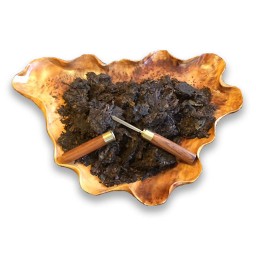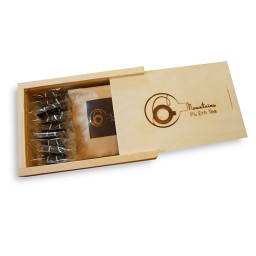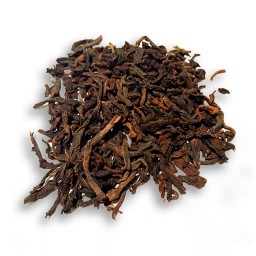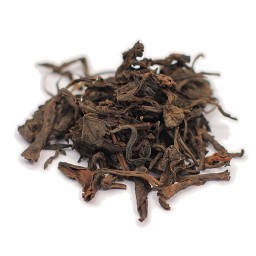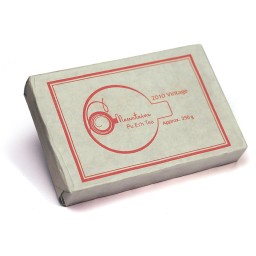Fancy a cup? This century-old tea cake, for sale in Vancouver, would set you back $600,000
Original story at: http://www.theprovince.com/life/Fancy+This+century+cake+sale+Vancouver+would+back/10864242/story.html
A rare century-old tea worth about $600,000 is for sale in Vancouver.
The round disc of tea, made up of 375 grams of raw compressed pu’erh, isn’t much to look at; but for tea connoisseurs, it’s a coveted treasure.
“It’s one of the rarest teas in the world, and arguably the most valuable of the famous teas,” said tea specialist Erick Smithe of 6 Mountains Tea Ltd., a North American wholesaler of vintage pu’erh teas based in Vancouver.
Pu’erh, dubbed the “king of teas,” is a fermented black tea grown in China’s Yunnan province. It’s been drunk by emperors and monks; wars, it is said, have been fought over it.
For centuries, pu’erh has been prized for its medicinal qualities. But in recent years, vintage leaves, typically compressed into bricks or cakes, have become a collectible.
Pu’erh is meant to be aged, gaining a richness and complexity as it matures. Much like fine French wines or Scotch whiskey, vintage pu’erh can command top dollar. In 2013, a century-old stack of pu’erh cakes sold for about $1 million a kilogram in Hong Kong.
The $600,000 tea cake dates back to 1910, a decade that produced particularly fine vintages.
“These 1910 tea cakes are exceptionally rare. Even if some other tea is older, it may not have the same majesty as a 1910 vintage,” said Smithe.
The tea cake, which is usually stored in a temperature- and humidity-controlled vault, is one of 49 left in the world. All are part of company owner Kennedy Yeung’s family’s collection, said Smithe. Yeung’s father is one of the world’s foremost collectors of vintage teas, with a collection that rivals that of Beijing’s Palace Museum.
The Vancouver company, which was founded two years ago, is meant to carry on the family tradition in the west, Smithe said.
Tea is becoming increasingly popular in North America, with large chains such as Teavana, acquired by Starbucks last year, and Quebec-based David’s Tea setting up shop. Tea consumption in Canada is expected to increase 40 per cent in the next six years, according to a report by Agriculture Canada.
The company’s decision to establish itself in Vancouver was a strategic move, said sales manager Robert Weys, citing the region’s climate and large Asian population as draws.
“There are a lot of people who are already aware of pu’erh teas,” said Weys. “It’s also multicultural, there’s very good restaurants and a foodie culture here.”
The art of traditional Chinese tea brewing is undergoing a renaissance, said Smithe. Passion for pu’erh still remains an underground movement primarily in the Chinese community, he added, but one he expects will spread to mainstream society.
Most buyers of high-end teas buy them as gifts or to commemorate milestones, such as a wedding or the birth of a child. Some buy the tea to drink, but once a tea cake is broken up, the value is reduced.
Brewing the $600,000 tea cake’s first pot would cost about $150,000, estimated Smithe, including the depreciation from breaking up the disc.
One reason so few of the 1910 tea cakes remain is because they make such a high-quality brew people would just drink them — something Smithe was clearly itching to try.
“The reason I don’t have unfettered access to it is because they’d know I’d drink it given the opportunity,” he joked.
When asked what vintage tea tastes like, Smithe explained it thus: “Some people would try to relate the taste to flavours, such as dates or plums or a sandalwood fragrance,” he said.
“It’s all there, but with tea that’s 100 years old, it becomes this otherworldly fusion of the familiar and the foreign. As these flavours fuse together, it becomes a gestalt kind of thing.
“It is more than the sum of its parts.”

